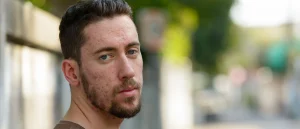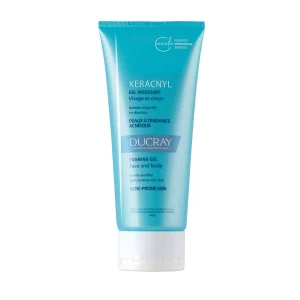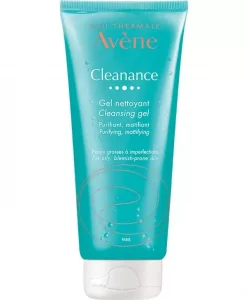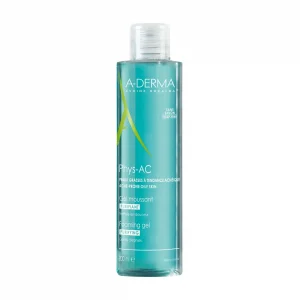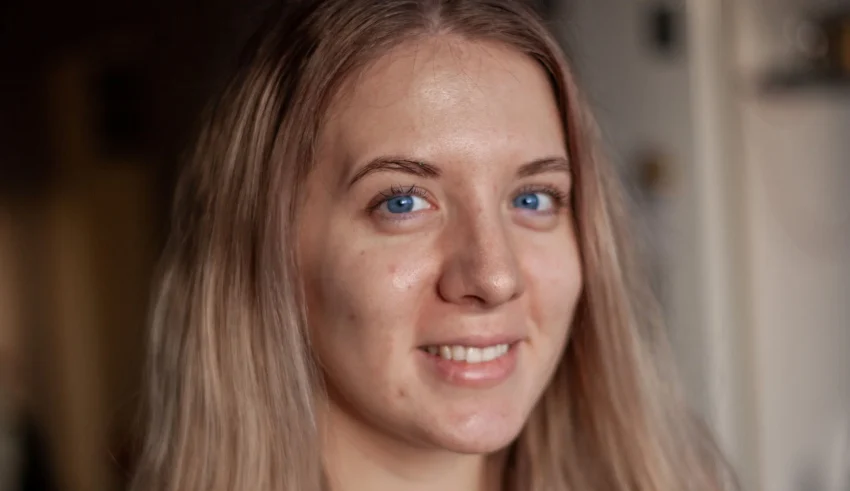
Pimples are bad enough, but when they’re painful, it’s like adding insult to injury. Nodular acne is a severe type of inflammatory acne, which causes large, painful breakouts called acne nodules. Unlike the type of pimples most of us are used to, acne nodules are larger than typical pimples and affect deeper layers of the skin. In this article from The Dermo Lab and in collaboration with the dermatologist Dr. Samar Khalil, we will explore the causes, symptoms and treatment options of nodular acne.
What is nodular acne and what does it look like?
According to Dr. Samar Khalil, nodular acne is a severe form of acne characterized by nodules and cysts. The term is used interchangeably with nodular acne and cystic acne.
Nodules can appear alone or spread over a large area, causing nodule patches. Unlike ordinary pimples, acne nodules do not tend to form a head. If you try to squeeze them, you won’t release pus and you risk causing further inflammation.
“In this type of acne, we’re not talking about regular whiteheads, blackheads, papules and pustules, but rather larger, deeper and more inflamed lesions. These lesions tend to be painful and, unfortunately, often result in scarring,” explains Dr. Samar Khalil. She adds that it is essential to see a dermatologist to diagnose any form of acne, including nodulocystic acne.
As opposed to small pimples that heal relatively quickly, acne nodules can last for months. These blemishes:
- may look like hard knots under the skin
- can be found deep under the skin’s surface
- may be painful to the touch
- may have the same color as the skin or appear red and inflamed
What causes nodular acne?
Like all pimples, nodular acne starts when a pore becomes clogged. Nodular acne forms when a type of bacteria called P. acnes, which lives on the skin, gets trapped in the clogged pore. This can lead to an infection that affects the deeper layers of the skin, creating hard nodules.
Dr. Samar Khalil indicates that nodular acne can affect the face, neck, and trunk. It is most commonly seen in young men, but also in women. She adds that there is a genetic component and that patients with a family history of severe acne are at greater risk of developing it. Age, hormonal changes, and lifestyle also play an important role in its appearance.
What treatment options are available?
Because there is a risk of scarring, Dr. Samar Khalil insists that early treatment is essential. She cautions against treating it alone and recommends consulting a dermatologist.
Standard over-the-counter acne treatments may not be effective for nodular acne, as these medications tend to target excess oil and dead skin cells on the skin’s surface.
Nodular acne affects the deeper layers of the skin and therefore requires more intensive treatment. The dermatologist may recommend one of the following nodular acne treatment options:
1- Antibiotics
An overgrowth of the P. acnes bacteria is one of the factors that can cause nodular acne flare-ups.
A doctor can prescribe oral antibiotics to kill excess bacteria, keeping them from getting stuck in clogged pores and causing a flare-up. Antibiotics can also reduce the pain or inflammation of existing rashes.
2- Isotretinoin
Dr. Samar Khalil notes that one of the indications for isotretinoin is nodular acne.
Isotretinoin is a powerful prescription acne medication that is taken daily. It is an effective way to treat all forms of acne. But doctors only prescribe it for severe acne because it has several unwanted side effects. The most common ones are:
- dry skin, lips, eyes, throat, and nose
- nosebleeds
- increased skin sensitivity to the sun
- headaches
- general aches and pains
Women who are pregnant or trying to become pregnant should not use isotretinoin because it can harm the growing fetus.
3- Birth control pills
Some women with nodular acne find that hormonal changes can trigger a breakout.
Androgens (hormones) might promote sebum production on the skin, which increases the risk of clogged pores and breakouts.
Doctors may recommend birth control pills to women who have nodular acne outbreaks caused by hormonal changes.
4- Topical treatments
Topical treatments are creams that a person applies directly to their skin. Here are some topical treatments:
- Antibiotic cream: It helps kill bacteria trapped under the skin.
- Retinoids: These are made from vitamin A and help unclog pores.
- Prescription salicylic acid: It dries out excess oil and removes dead skin cells.
Some people may use acne creams as an initial treatment or in addition to oral treatment. For more severe breakouts, topical treatments are usually not effective if used alone.
Dr. Samar Khalil notes that local steroid injections can also be used for inflamed lesions to help them heal more quickly.
5- Office procedures
Some office procedures might also be beneficial when combined with prescription medications. These procedures help reduce bacteria and inflammation and prevent scarring:
- acne drainage and extraction
- chemical peels
- laser therapy
- blue light therapy
Skin Care Dos and Don’ts
As with other forms of acne, preventing nodular acne starts with good skin care. Here’s what you should do:
- Wash your face twice a day.
If you exercise in the middle of the day, another quick wash with a gentle cleanser helps keep bacteria from clogging your pores.
We’ve rounded up 3 of the most effective cleansers for acne-prone skin that will help prevent future breakouts and won’t further irritate the skin.
Ducray Keracnyl Foaming Gel
Eau Thermale Avène Cleanance Cleansing Gel
A-Derma Phys-Ac Purifying Foaming Gel
- Remove all makeup at night.
This will reduce the amount of oil and bacteria that builds up on your skin.
- Apply a light moisturizer after cleansing your face.
- Use a face mask twice a week
This will remove oil, dead skin cells, and bacteria from your pores.
- Make sure you wear SPF 30 sunscreen every day.
- Don’t squeeze out acne nodules.
According to Dr. Samar Khalil, when you pop nodular acne lesions, you cause more inflammation and increase the risk of scarring.
- Always wash your hands before applying cosmetics.
When to consult a dermatologist
Dealing with nodular acne can be frustrating at any age and might affect self-confidence. Anxiety and depressive thoughts are common among people who struggle with any type of acne.
If your acne nodules are having a negative effect on your daily life and self-esteem, consult a dermatologist who can set up a suitable treatment plan. It is especially important to see your dermatologist if you have recurring cases of nodular acne.
It can take months or years to treat nodular acne before you see improvement. Until then, you can prevent breakouts by keeping your skin clean and resisting the urge to touch acne nodules.
Last Updated on April 16, 2024
